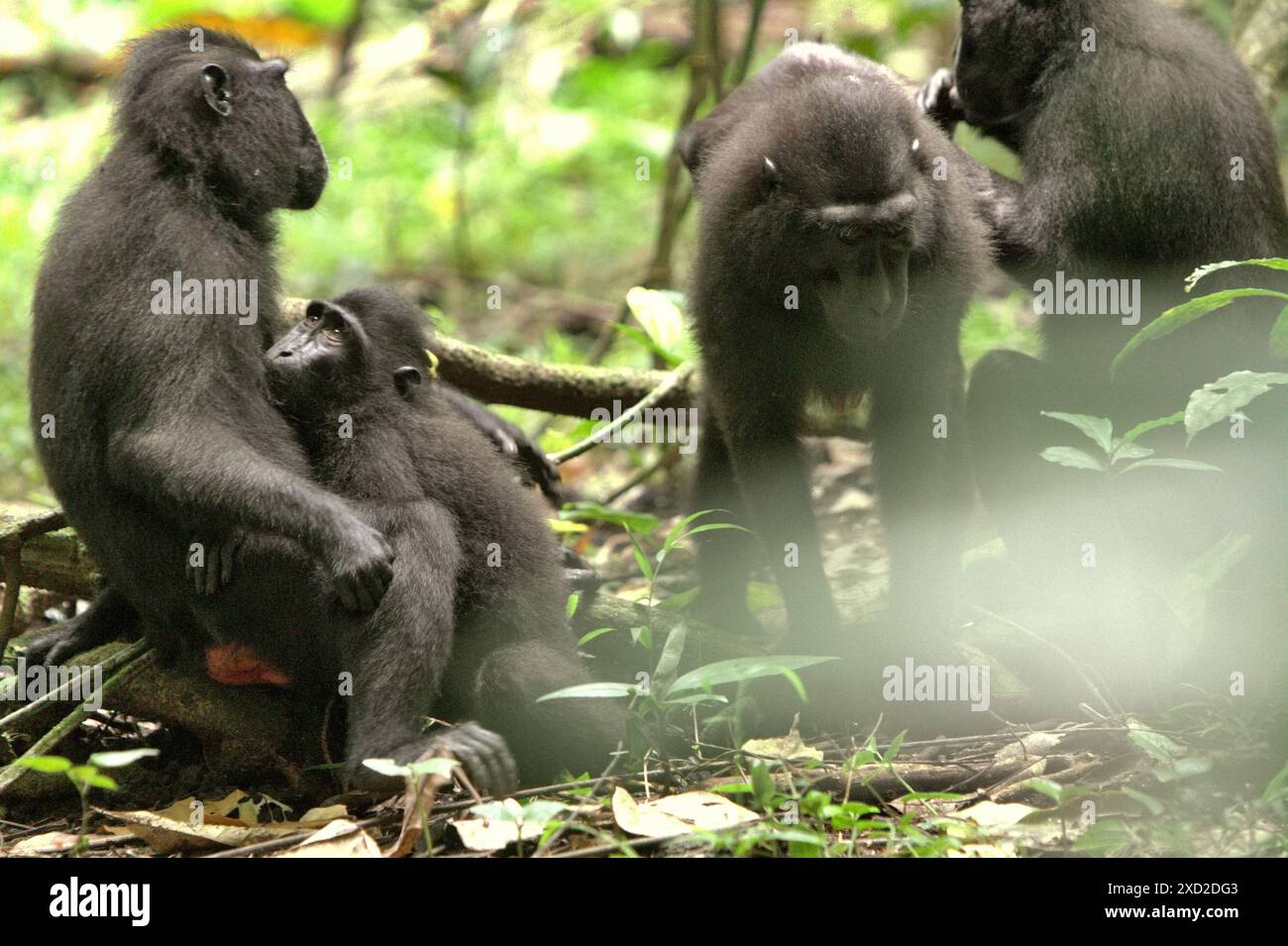A group of Sulawesi black-crested macaque (Macaca nigra) in Tangkoko Nature Reserve, North Sulawesi, Indonesia.

Image details
Contributor:
Pacific Imagica / Alamy Stock PhotoImage ID:
2XD2DG3File size:
38.6 MB (2 MB Compressed download)Releases:
Model - no | Property - noDo I need a release?Dimensions:
4500 x 2996 px | 38.1 x 25.4 cm | 15 x 10 inches | 300dpiDate taken:
19 January 2012Location:
Batuputih, Ranowulu, Bitung, North Sulawesi, IndonesiaMore information:
A group of Sulawesi black-crested macaque (Macaca nigra) in Tangkoko Nature Reserve, North Sulawesi, Indonesia._Climate change impacts on world's primates: Case of Sulawesi black-crested macaque (Macaca nigra)_"Story of the Frisky Yaki"_Since at least 1997, scientists have been examining the possible impacts of climate change to primates of the world, with results that it is changing their behaviors, activities, reproductive cycles, food availability and foraging range. Currently, approximately one-quarter of primates' ranges have temperatures over historical ones, according to a team of scientists led by Miriam Plaza Pinto. Tangkoko forest, a sanctuary where crested macaque lives, suffers from temperature increase by up to 0.2 degree Celsius per year, as reported by a team of primatologists led by Marine Joly after a long-time research, adding that the overall fruit abundance is also decreasing. Another report by a team of scientists led by Sitti Aisyah May Wulandari (2022) suggests that, in the case of crested macaque, changes related to seasons will indirectly affect the possibility of the endemic monkey being infected by endoparasites._The habitat suitability of primate species is reduced, that could force them to move out of safe habitats and face more potential conflicts with human. Without the warming temperature, primates have already suffered from the escalating anthropogenic pressures, causing up to 93% species to have declining population and around 68% to enter the extinction risk._Therefore, primate conservation needs "a holistic strategy of education, capacity building, and community-based conservation draws upon a blend of insights from multiple social scientific disciplines alongside direct research with communities in the area, " a team of scientists led by Harry Hilser wrote in their 2023 paper on International Journal of Primatology.